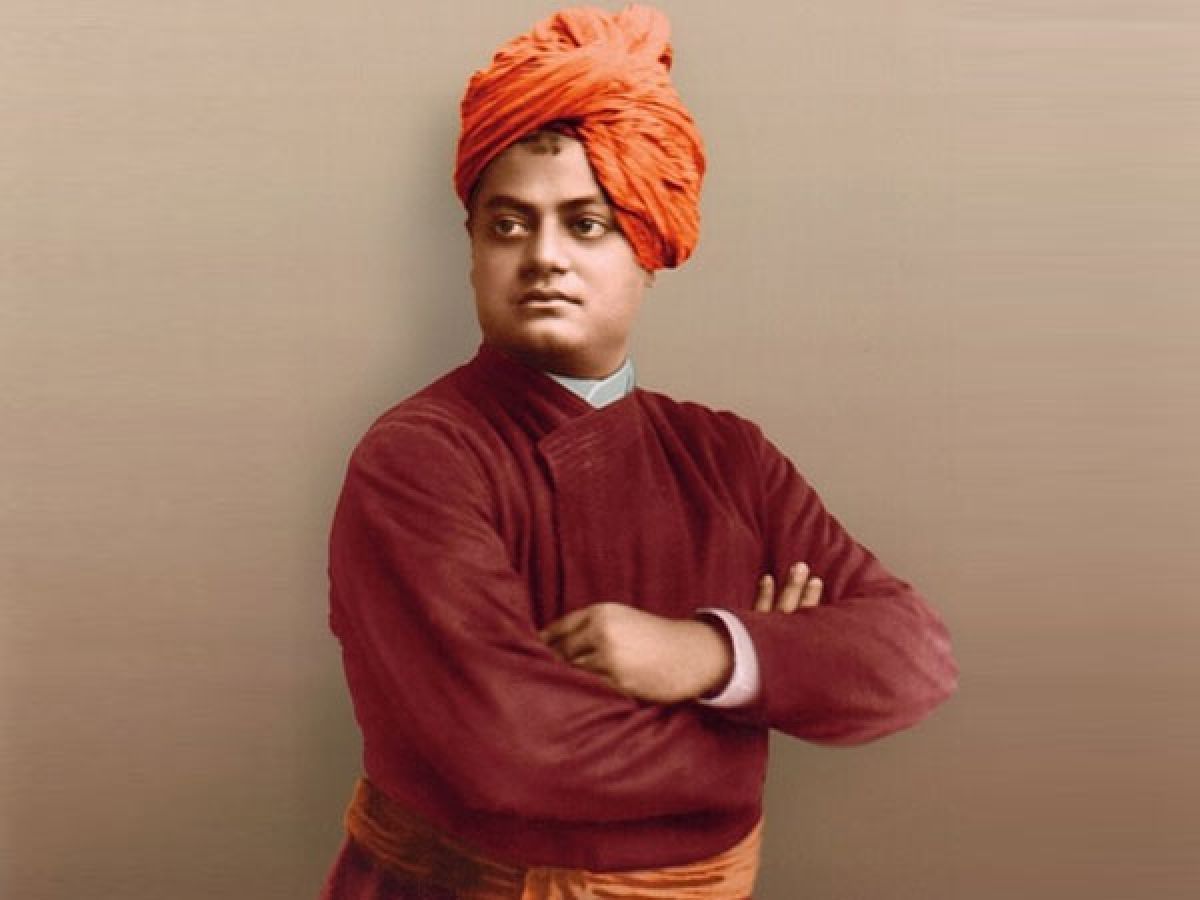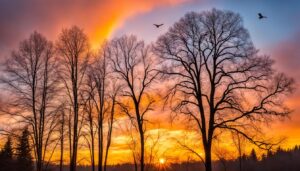Swami Vivekananda is a name that doesn’t require any kind of introduction. He is a prominent figure who has been credited with helping to educate the west about Hinduism. He was a representative of Hinduism at the Parliament of Religions in 1893 in Chicago and, as a result of this, an unassuming monk from India instantly became famous. National Youth Day is observed on January 12 to commemorate the birthday of Swami Vivekananda.

Swami Vivekananda was a Hindu monk and was one of the most revered spiritual leaders in India. He was not just spiritually intelligent, he was also an extremely prolific thinker, skilled orator, and passionate patriotic. He carried the free-thinking principles of his teacher, Ramakrishna Paramhansa forward into the new paradigm. He tirelessly worked towards the betterment of society, through service to the less fortunate and in need by giving his best to his country.
He was the main reason behind the emergence of Hindu spirituality as well as established Hinduism as a religion that is revered in the world. His message of universal brotherhood and self-awakening is relevant, especially in the present situation of widespread political instability across the globe. His young disciple and the teachings he imparted have served as an inspiration for many, as well as his writings have been a goal to improve oneself, particularly for youth in the nation. Because of this, his birthday on January 12 is observed by the National Youth Day in India.
Born: 12 January 1863
Place of Birth: Kolkata, India
Childhood Name: Narendranath Dutta
Father: Vishwanath Dutta
Mother: Bhuvaneshwari Devi
Education: Calcutta Metropolitan School; Presidency College, Calcutta
Religion: Hinduism
Guru: Ramakrishna
Founder of: Ramakrishna Mission (1897), Ramakrishna Math, Vedanta Society of New York
Philosophy: Advaita Vedanta
Literary works: Raja Yoga (1896), Karma Yoga (1896), Bhakti Yoga (1896), Jnana Yoga, My Master (1901), Lectures from Colombo to Almora (1897)
Death: 4 July 1902
Place of Death: Belur Math, Belur, Bengal
Memorial: Belur Math. Belur, West Bengal
Early Life and Education of Swami Vivekananda
Born Narendranath Dutta to a wealthy Bengali family from Calcutta, Vivekananda was one of the eight children of Vishwanath Dutta and Bhuvaneshwari Devi. Vivekananda was born on the 12th of January 1863 on the celebration of Makar Sankranti. Father Vishwanath was an accomplished lawyer with a significant influence on society. His mother, Narendranath’s Bhuvaneshwari had a reputation as a lady with a godly, strong mind, which had a huge influence upon her child.
As a young boy, Narendranath displayed sharp intellect. His playful personality was in contrast to his passion for music that was vocal as well as instrumental. He was a star in his studies too in the beginning, with the Metropolitan institution, and then in the Presidency College in Calcutta. When he completed his graduation at the school, he gained a wealth of knowledge in diverse topics.
He was involved in gymnastics, sports, and wrestling, as well as bodybuilding. He was a voracious reader and read about every subject imaginable. He delved into the Hindu Scriptures, such as The Bhagavad Gita as well as the Upanishads on the one hand while on the other he read about western philosophy, history, and spirituality through David Hume, Johann Gottlieb Fichte, and Herbert Spencer.
Relationship with Ramkrishna Paramhansa

Though Narendranath’s mom was a committed woman and he was raised in a religious environment in his home, the young man was struck by an intense spiritual crisis around the age of 15. The depth of his knowledge caused him to doubt whether there was a God and for a time the believer was Agnosticism. However, he was unable to entirely dismiss that there was a Supreme Being.
He became a part of the Brahmo Movement led by Keshab Chandra Sen for a period of time. It was believed that the Brahmo Samaj recognized one God and was not a fanatical, idol-bearing Hinduism. The myriad of philosophical issues concerning whether or not there was a God that roiling in his mind were unanswered. In the midst of this spiritual crisis, Vivekananda first heard about Sri Ramakrishna by William Hastie, the Principal of the Scottish Church College.
In the past, in order to satisfy his desire to know God, Narendranath visited prominent spiritual leaders of all religions and asked them one question “Have you seen God?” Every time, he came to the conclusion that he could not get a satisfactory answer. He asked a similar inquiry to Sri Ramkrishna at his home in the Dakshinewar Kali Temple compounds. Without hesitation, Sri Ramakrishna answered: “Yes, I have. I see God as clearly as I see you, only in a much deeper sense.” Vivekananda was initially unimpressed with the simplicity of Ramkrishna’s answer was stunned by Ramakrishna’s response. Ramakrishna slowly won over this youthful man who was arguing with him through his kindness and compassion. The more Narendranath was in Dakshineshwar more often, the more of asked questions were answered.
Spiritual Awakening
In the year 1884 Naredranath suffered a significant financial crisis because of the death of his father, as he was forced to provide for the younger children and his mom. He pleaded with Ramakrishna to pray to the Goddess for the financial well-being of his entire family. Following Ramakrishna’s suggestions, he himself visited the Temple to offer prayers. When he walked before the goddess, he was unable to seek wealth or money He instead asked for “Vivek” (conscience) and the word ‘Bairagya’ (reclusion). This day was the moment of complete religious awakening for Narendranath and he became attracted to the ascetic way of living.
Life of a Monk
During the latter part in 1885, Ramakrishna was suffering from throat cancer. suffered from throat cancer became severely sick. Sri Ramakrishna transferred into Shyampukur in Culcutta in the state of Culcutta. A couple of months later, Narendranath moved into a villa he rented in Cossipore. In Cossipore, he gathered a group of youngsters who were dedicated devotees of Sri Ramakrishna. Together, they took care of their Guru with devotional care. On the 16th of August, 1886 Sri Ramakrishna departed from his body to the Lord. After the death of Sri Ramakrishna in the year 1887, around fifteen of his followers, including Narendranath began living in a decrepit structure in Baranagar located in North Calcutta, which was known as Ramakrishna Math, the monastic order of Ramakrishna. The year 1887 was the year that they officially renounced all ties to the world and made vows to monkhood.
The brothers rechristened themselves, and Narendranath became Vivekananda which means “the bliss of discerning wisdom”. The brothers lived off donations of alms made by patrons during holy begging or’madhukari in yoga, and also during meditation. Vivekananda was exiled from his position at the Math in 1886. He then went to India by foot, referred to as”Parivrajak”. He traveled across the country and was able to absorb a lot of the cultural, social as well as religious aspects of the people he came into contact with. He observed the challenges of daily life that common people face, and their ailments, and the adversities they faced and promised to dedicate his life to providing relief to those struggling.
Ramakrishna Mission
Vivekananda was back in India in 1897 to an enthusiastic reception from both the public and the royal alike. He arrived at Calcutta after several lectures throughout the country. He established the Ramakrishna Mission on May 1 in 1897 at Belur Math near Calcutta.
The objectives of the Ramakrishna Mission were based on the principles and principles of Karma Yoga and its primary mission was to assist the poor and disadvantaged populace of the nation. In the course of its work, Ramakrishna Mission undertook various forms of social service, such as creating and running schools hospitals, colleges, and schools as well as the propagation of the practical tenets of Vedanta through conferences, seminars, and workshops, establishing the work of rehabilitation and relief throughout the country.
His religious conviction was in combination with Sri Ramakrishna’s spiritual teachings on Divine manifestation, as well as his own practice that of Advaita Vedanta philosophy. He urged to attain the spirituality of the soul through devotional work, worship as well as mental discipline. According to Vivekananda, the ultimate aim is the freedom of the soul, which encompasses all of one’s beliefs. Swami Vivekananda was a well-known nationalist who had the welfare of all his fellow citizens at the forefront of his thoughts. He advised his fellow citizens to “Arise, awake, and stop not till the goal is reached”.
Swami Vivekananda attended the World Parliament of Religions

When he learned of the World Parliament that was organized in Chicago, America. He was eager to go to the gathering, in order to represent India and the philosophies of his Guru. After a series of difficulties and difficulties, he went to a religious gathering. On 11 September 1893, the stage was his and he walked onto the stage and shocked everyone as he proclaimed “My brothers and sisters of America”.
In return, he was given an ovation standing up from the crowd. He explained the principles of Vedanta as well as their significance spiritually, etc. He stayed around two and one-half years in America in the first place and also founded the Vedanta Society in New York. He also traveled to the United Kingdom to preach spiritualism, philosophies, and the principles of Vedanta. When he learned of the World Parliament that was organized in Chicago, America. He was eager to attend the event, and be a representative of India and his Guru’s philosophy. After a series of difficulties, it was his turn to attend the religious gathering. On the 11th of September 1893, he walked onto the stage and shocked everyone when he said “My brothers and sisters of America”.
In recognition of this, he was given applause from the crowd. He presented the basic concepts of Vedanta and their spiritual meaning and the significance of their spiritual meaning. He stayed for two and one-half years in America in the first place and also founded the Vedanta Society in New York. He also visited his home country of the United Kingdom to preach the spiritual and philosophical fundamentals of Vedanta.
Death
He predicted that he would not live to 40 years old. Thus, on the 4th of July 1902, he passed away during meditation. According to legend, he had achieved ‘Mahasamadhi’ and was laid to rest at the Banks of the River Ganga. He said he would never live beyond 40 years old. So, on July 4th, 1902, he perished in meditation. According to legend, he achieved ‘Mahasamadhi’, and was buried at the Banks of the River Ganga.
Why is Vivekananda famous?
Swami Vivekananda (1863-1902) is most well-known throughout his native United States for his innovative speech to the World’s Congress of Religions where the Indian leader presented Hinduism in America and demanded religious tolerance and the end of religious fanaticism.
Who is Vivekananda’s wife?
No, Swamiji didn’t get married. He believed that all women could represent God, the Divine Mother. Universe. Every woman was his Mother in this way.
Why did Swami Vivekananda die so early?
Swami Vivekananda’s death occurred at the premature age of 39 on the 4th of July 1902 because of a rupture of the blood vessel that surrounded the brain. The people who knew him to claim that he achieved Mahasamadhi (the practice of conscious and deliberately letting go of your body in the moment of death) when contemplating.
How can I reach Mahasamadhi?
Mahasamadhi is a state in which a yoga practitioner enters at the point they are conscious of the choice to quit their body. It is only possible after they have achieved God-realization, also known as Nirvikalpa Samadhi, where the yogi is aware of and experiences their real oneness and connection with God.
My favourite Quote of Swami Vivekananda
A man is not poor without a rupee but a man is really poor without a dream and ambition.
Swami Vivekananda
Manthanub has trained lots of people to achieve celibacy via their youtube channel and through their courses. You can take exclusive courses of manthanhub for your tremendous transformation. For getting more details about the courses you can click here.





My life has really been changed by Manthanhub, and I am grateful for this karmic connection with profound souls who are behind this great service of saving man and mankind. For those who are in misery of uncontrollable lust have found a way to control the senses and have a ambitious life 🙏🌸👣